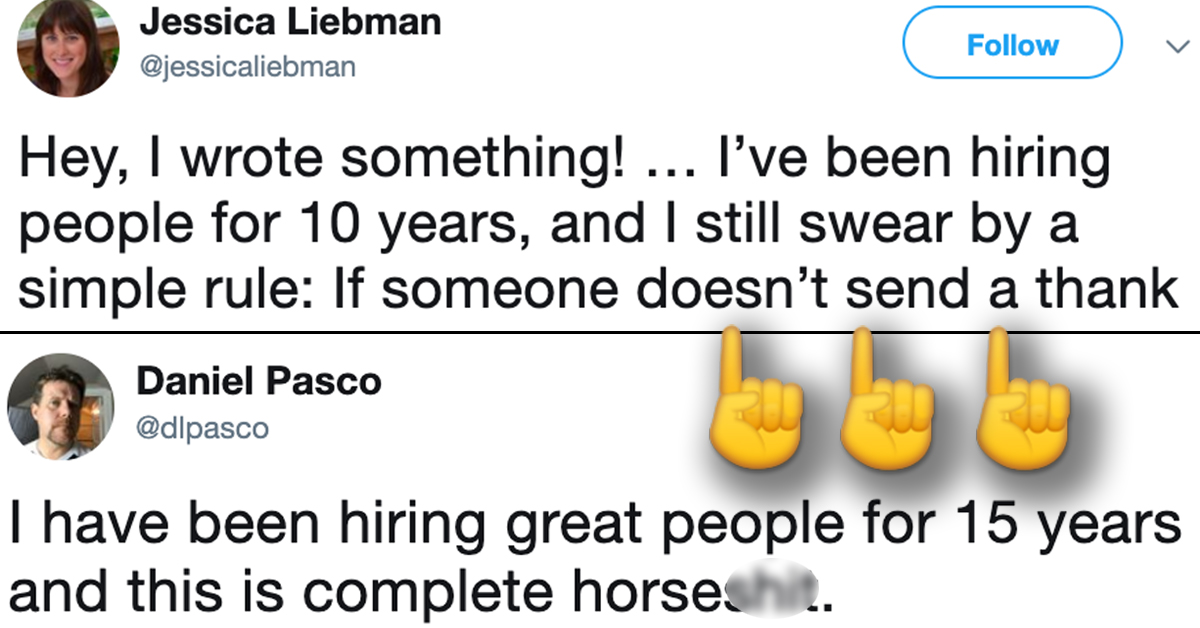Twitter Is Roasting The Hell Out Of This Hiring Manager’s ‘One Simple Rule’ For Getting A Job
Landing a job interview is difficult. Landing the job itself? Doubly so.
But one hiring manager’s “expert” advice for nailing both is causing outrage across social media.
Do you wear a suit, or is that too stuffy? Have you prepared all the right answers to all the potential questions? How about when it’s your turn to ask questions—how many is too many?
According to Jessica Liebman, the executive managing editor of Business Insider, there’s just one simple rule you can follow to improve your odds of landing a job— and it takes place after the interview is over.
“I’ve been hiring people for 10 years, and I still swear by a simple rule: If someone doesn’t send a thank you email, don’t hire them,” wrote Liebman in a controversial tweet.
Hey, I wrote something! … I’ve been hiring people for 10 years, and I still swear by a simple rule: If someone doesn’t send a thank you email, don’t hire them. https://t.co/NWXB1ozNgr
— Jessica Liebman (@jessicaliebman) April 5, 2019
In the Business Insider article she wrote and shared below the tweet, Liebman explained her reasoning:
“How someone presents in interviews might not translate to effectiveness in the role. While sending a thank-you note doesn’t necessarily guarantee the person will be a good hire, it gives you the tiniest bit more data: The candidate is eager, organized, and well mannered enough to send the note.”
She went on to add: “It shows resourcefulness, too, because the candidate often has to hunt down an email address the interviewer never gave them. At Insider Inc., we look to hire “good eggs.” The thank-you email is a mark for the good-egg column.'”
“Seven years later, I stand by it.”
But online critics say Liebman’s rule leaves her with candidates selected for socio-demographic background and economic class rather than skill.
Blanket gatekeeping, people argued, thoroughly ignores cultural and class differences—as well as those struggling with communication disorders.
Recruiters should be the ones sending thank you emails for candidates’ unpaid time.
There’s also the fact that hiring managers and recruiters hardly ever follow up to let candidates know they’ve been rejected, and some are even annoyed and inconvenienced by an additional email.
Many accused Liebman of “arbitrarily filtering people and bragging about it.”
And dozens of hiring managers decried called the practice, calling it “idiotic” and plain bad advice.
One user on Twitter even recalled that he had applied at Business Insider, and that after a 4-hour unpaid writing test and multiple ignored follow-up emails, he was still met with radio silence.
In fact, I was hard-pressed to find a single person on social media in support of Liebman’s “simple rule.” What do you think?
h/t Twitter

